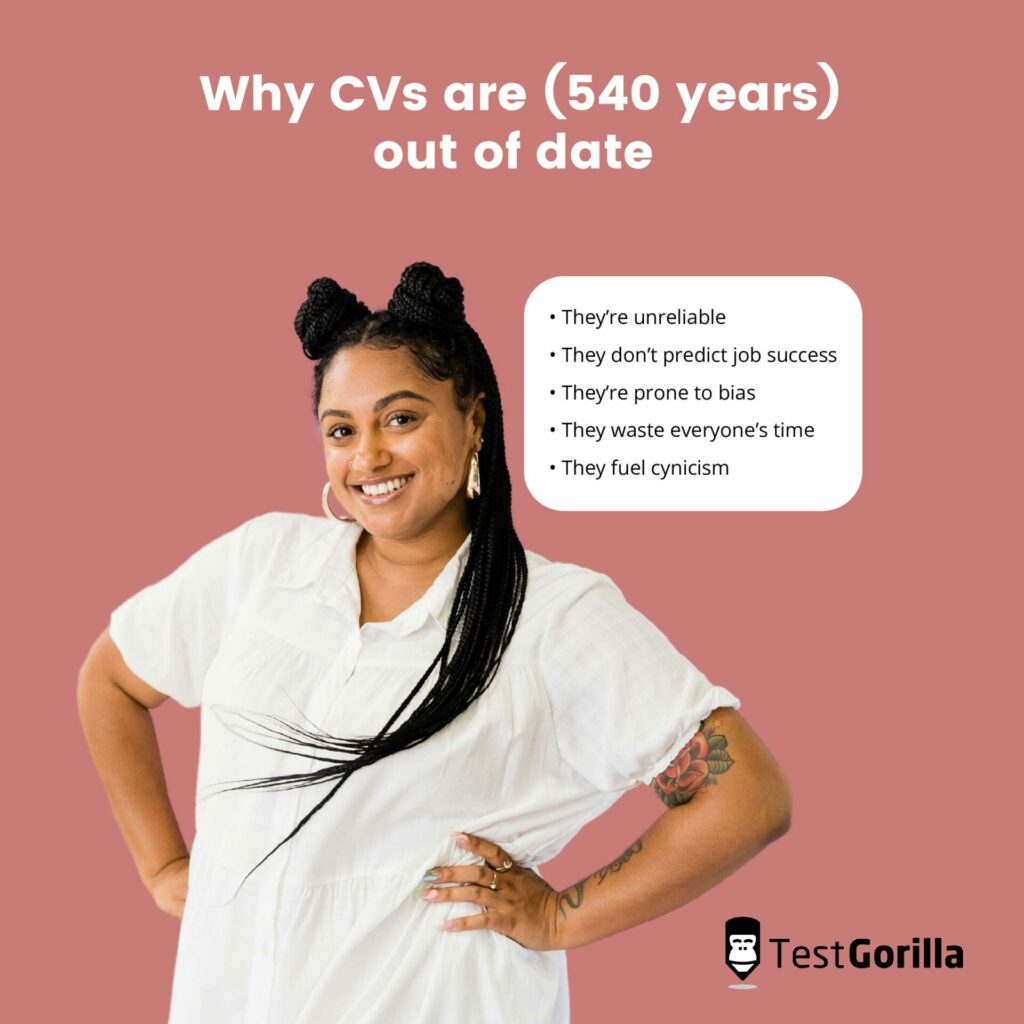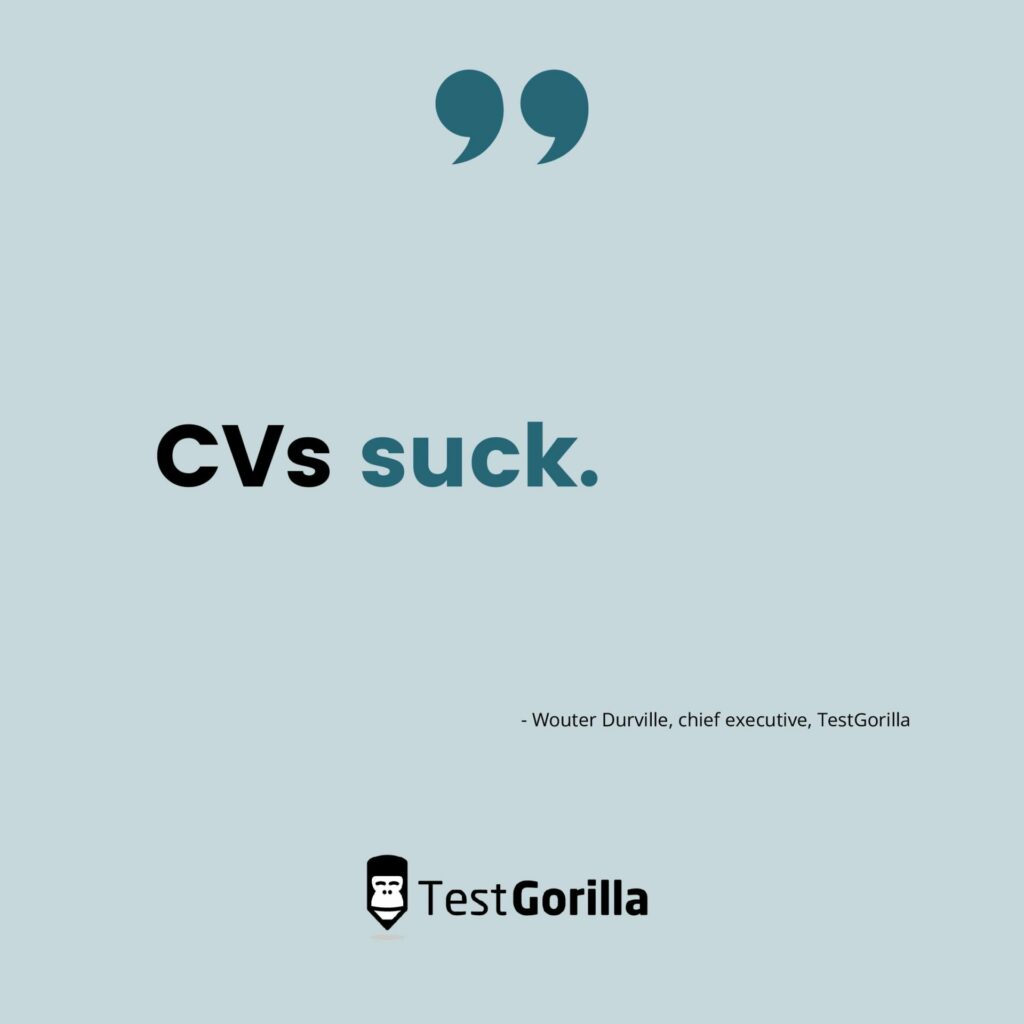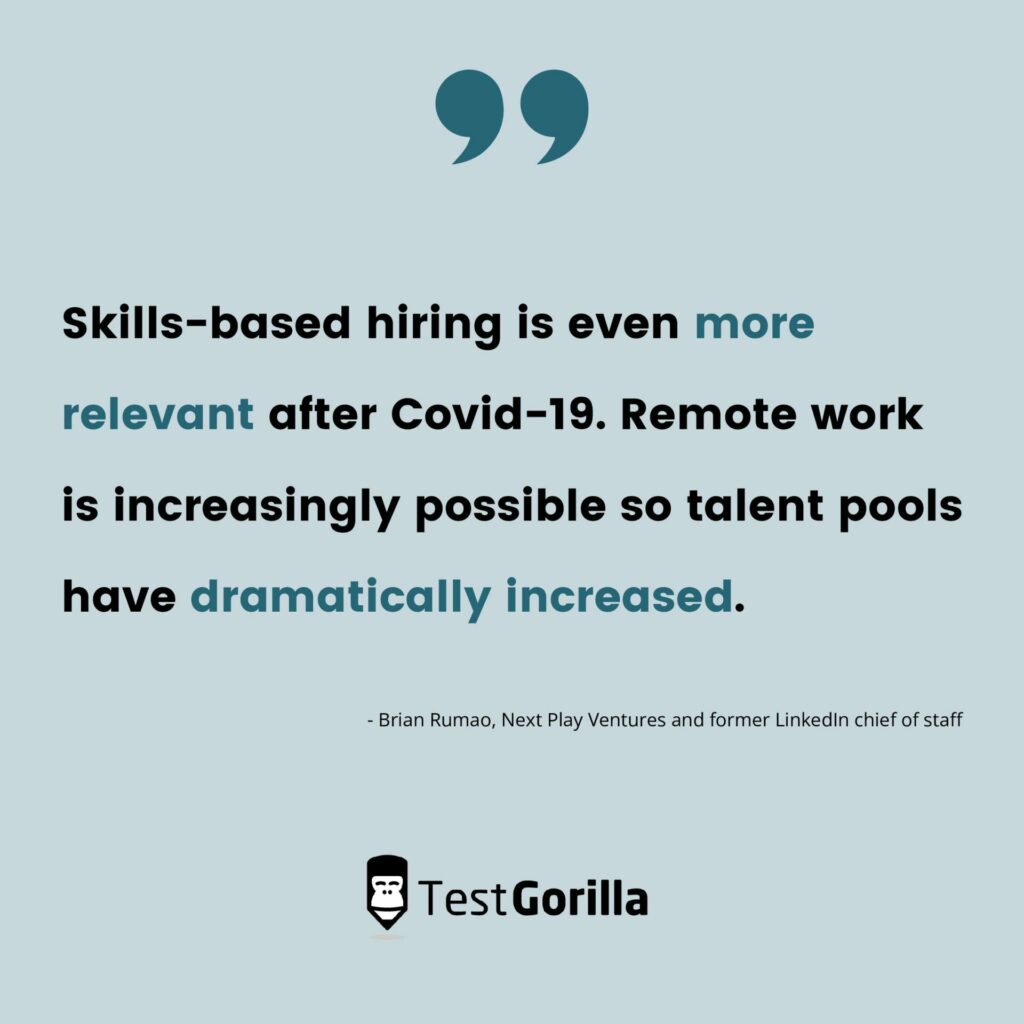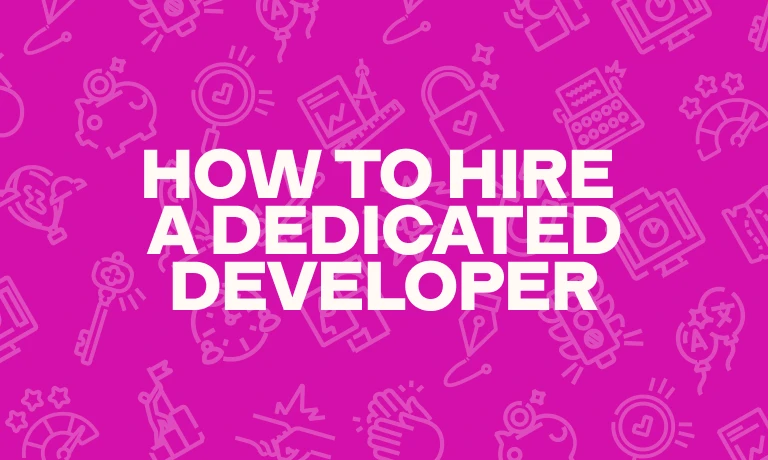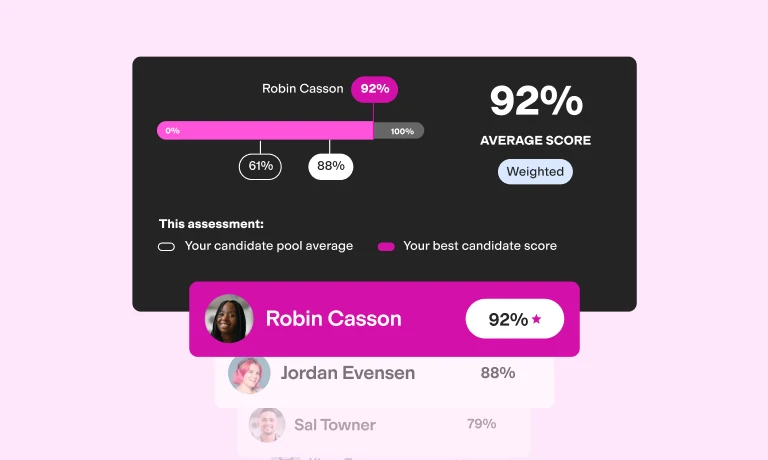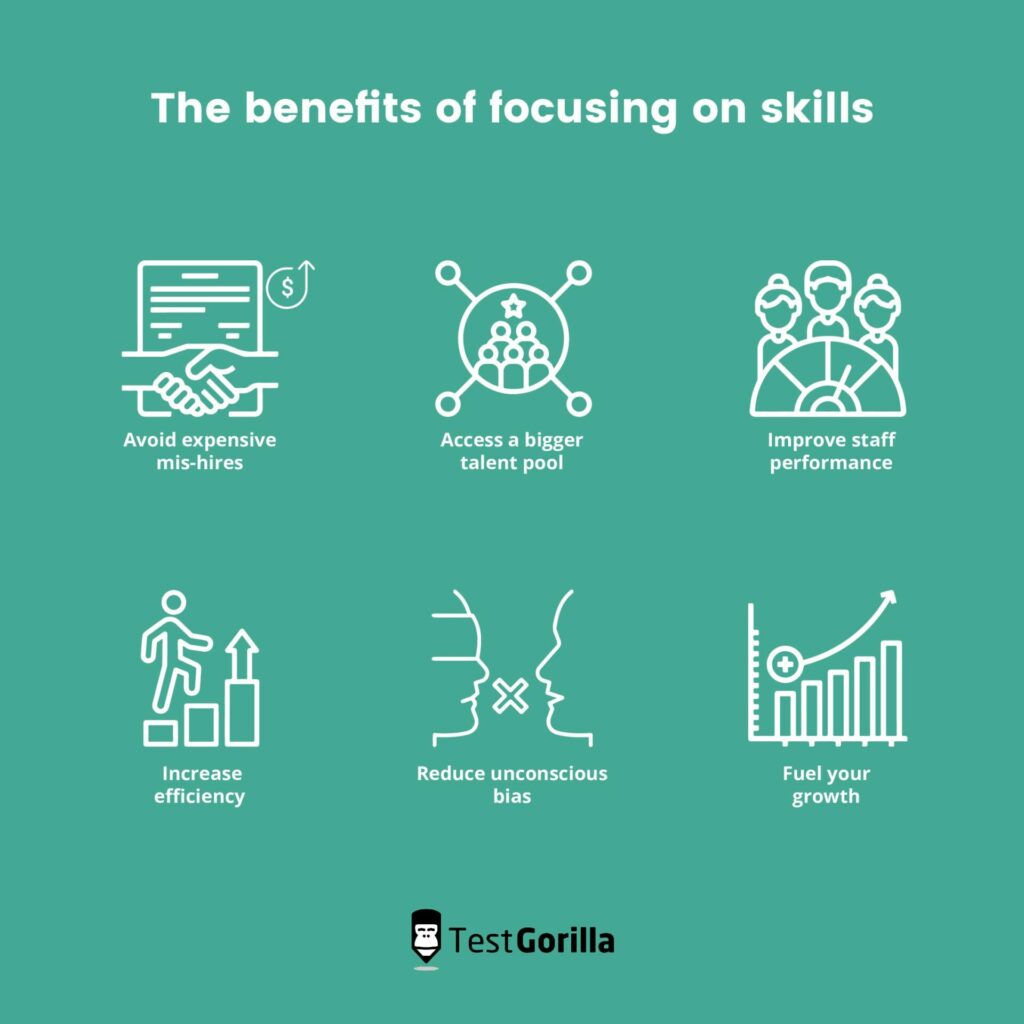Skills-based hiring: Why we need a new way to recruit
First there was the consultant who went viral with a vexed post about how he refused to continue recruiting by screening unreliable CVs. Then there was the writer whose exasperated essay about the difficulties of job-hunting prompted a wave of comments throbbing with frustration, pain, and fear.
Another job-seeker describes being messed around by a potential employer who chased her for almost five months, then ghosted her. And don’t get these people started on how recruitment agencies can behave…
We all have a horror story about hiring, either from our experiences as a candidate or a barely believable tale we’ve heard from a colleague or friend. But what do these nightmares have in common? Applicants increasingly believe – with justification – that employers are focusing on anything but their relevant, quantifiable skills.
This may sound unlikely: surely organizations know how to identify the skills they require and where to find them? You’d think so, but too many businesses, to their own detriment, simply aren’t doing it.
So the time has come for a new way to hire. We call it skills-based hiring. Simple, no?
In this blog, we’ll look in detail at skills-based hiring: what it entails, the drivers making this an increasingly popular way to recruit, the benefits for both businesses and candidates – and, perhaps most importantly of all, how to do it.
Table of contents
Let’s start at the beginning. What does skills-based hiring need to replace?
CVs suck: the old ways are out of date
Legend has it that Leonardo da Vinci invented the CV in 1482, but given the significant changes in the workplace during the intervening centuries (job interviews via Google Meet weren’t big in Renaissance Florence), it seems surprising that 21st-century recruitment relies on this increasingly compromised document (not to mention outdated interview techniques like asking a candidate to open a stuck window… seriously).
Resumes are a poor foundation on which to build the hiring process, for many reasons:
They’re unreliable: Confident candidates can oversell themselves by inflating their achievements, whereas less confident applicants may undersell their abilities
They don’t predict job success: Work by the organizational-psychology guru Frank Schmidt shows that CVs are the worst way to predict how new hires will perform
They’re prone to bias: On average, recruiters spend six seconds looking at each resume (less time than it takes to stir a coffee), which drives decisions based on bias
They waste everyone’s time: Hiring managers can’t spend their valuable hours on the best candidates when they have dozens, if not hundreds, of CVs to screen
They fuel cynicism: HR teams drowning in resumes often don’t respond to applicants, whose frustration with the system continues to grow
You’d think the aforementioned technological advances would help, but there are problems here, too. An Applicant Tracking System (ATS) can screen resumes based on selected keywords, but what if this process merely throws up candidates who know how to game the system by stuffing keywords into their CVs?
Businesses choose the wrong candidates based on CVs
Similarly, skilled applicants whose job experience doesn’t match those keywords will be filtered out. And these problems can’t be rectified later, because the selection of candidates for the interview stage is flawed, with bias hardwired into it, from the start.
In other words: “CVs suck.” That’s the blunt assessment of Wouter Durville, the co-founder and chief executive of TestGorilla, whose mission is not only to put people in dream jobs, but also to eliminate bias from the hiring process, creating a level playing-field where candidates can be judged solely on their skills.
The old-fashioned handshake on the golf course may have been replaced by whizzy digital alternatives, but relying on resumes and job experience limits employers’ ability to see a candidate’s full potential. The result is organizations hiring people in their own image, contributing to the lack of diversity that holds so many companies back.
The best insights on HR and recruitment, delivered to your inbox.
Biweekly updates. No spam. Unsubscribe any time.
Why we need to focus on skills – and how to do it
Any organization looking to recruit should focus, first and foremost, on skills. If employers set specific skill or competency requirements or targets for their vacant roles, there’s a much better chance of finding a candidate who is the perfect fit and avoiding expensive mis-hires.
Skills-based hiring benefits both organizations and individuals. It improves the quality of a company’s hires and subsequent performance, increasing efficiency and fueling economic growth, and it promotes equality of opportunity, creating more diverse teams.
And when it comes to performance management, and learning and development (frequently cited as a key benefit for Generation Z employees), a skills-based approach benefits businesses that want to upskill and reskill their existing team members.
“Society, technology and industries are changing so quickly that it’s harder to imagine what you’ll need from a person in two years. So this is also about people’s mindset in regard to developing their skills,” says Paul Musters, the founder of Amsterdam-based Fortify, which works with startup founders to build a strong company culture.
We can see that skills-based hiring has many benefits, but how do you do it? One way is by using a method that’s quickly growing in popularity – 82% of US companies are now using some form of pre-employment assessments. By replacing CV screening with scientifically validated tests, firms can make data-driven hiring decisions that aren’t vulnerable to bias; for example, choosing which applicants to interview based purely on their test results.
Is skills-based hiring still catching on?
Skills-based hiring has been described as “the latest recruitment buzzword” by the World Economic Forum, but despite the popularity this suggests, little work has been done to define the term. It’s distinct from “talent-based” or “merit-based” recruitment , neither of which zeroes in on skills, and “bias-free hiring”, which addresses one key element of the recruitment process without suggesting a remedy for it.
Undaunted, though, employers are working it out for themselves. Pre-employment testing, for example, is booming in popularity, with TestGorilla – whose investors include the former LinkedIn chief executive Jeff Weiner’s Next Play Ventures – announcing Series A funding of $70m in June 2022, after gaining more than 6,000 customers in less than two years.
That this growth happened during a global pandemic provides further reason to believe that employers are increasingly drawn to skills-based hiring. As Brian Rumao, LinkedIn’s former chief of staff, tells us: “It’s even more relevant after Covid-19 because remote work and hiring across borders are increasingly possible, so talent pools have dramatically increased by orders of magnitude.”
In coming blogs, we’ll look in more detail at what skills-based hiring entails, as well as the trends and drivers that are making this a growing trend. We’ll also look at how to do it successfully, and at the sectors and industries that are leading the way – because this is one trend that’s undoubtedly here to stay.
You've scrolled this far
Why not try TestGorilla for free, and see what happens when you put skills first.


